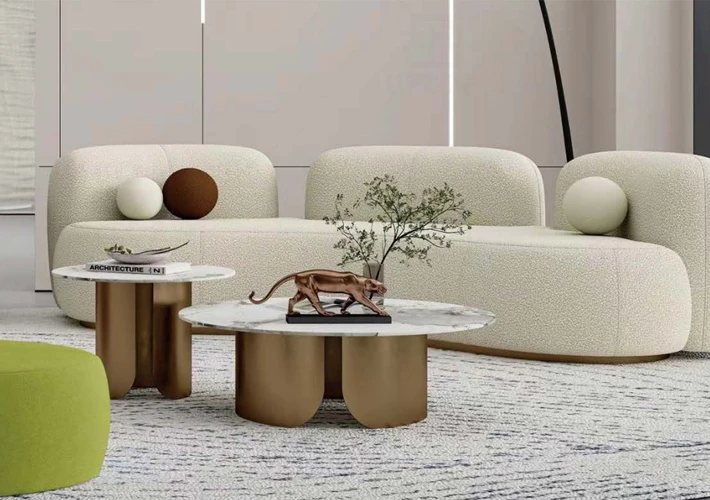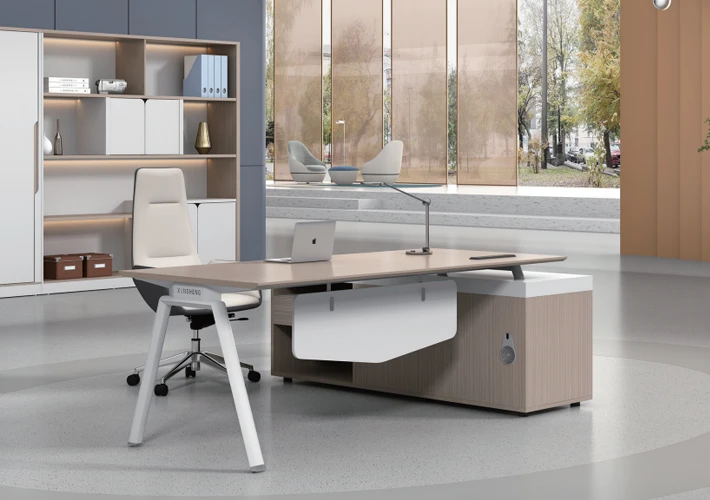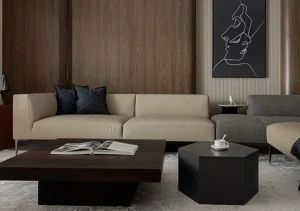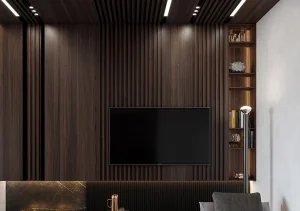Table of Contents
ToggleIntroduction
In recent years, the global hospitality industry has witnessed a growing emphasis on sustainability and environmental responsibility. As hotels strive to reduce their carbon footprint and align with green initiatives, the selection of eco-friendly and sustainable furniture has become a crucial part of this effort. Sustainable hotel furniture not only helps protect the environment but also enhances guest experience by promoting health, comfort, and a deeper connection to nature.
With consumers increasingly prioritizing eco-consciousness in their travel choices, hotels that invest in sustainable furniture options stand to gain a significant competitive advantage. This article explores the importance of eco-friendly hotel furniture, outlines the materials and design trends, and offers practical advice on how hotels can integrate sustainability into their furniture procurement and maintenance processes.
Why Choose Eco-Friendly and Sustainable Hotel Furniture?
Environmental Responsibility
Hotels consume vast amounts of resources, from energy to raw materials, and furniture production is a significant contributor to environmental degradation. Using furniture made from renewable, recycled, or sustainably sourced materials can greatly reduce deforestation, pollution, and waste. By choosing eco-friendly furniture, hotels demonstrate a commitment to preserving the planet, aligning themselves with global environmental goals such as the UN’s Sustainable Development Goals (SDGs).
Enhanced Brand Image and Guest Satisfaction
Modern travelers are more environmentally aware than ever. Hotels that adopt green practices, including sustainable furniture, can attract eco-conscious guests, improve customer satisfaction, and build brand loyalty. Such initiatives also appeal to corporate clients who prioritize sustainability in their event and accommodation choices.
Cost-Effectiveness Over Time
While some sustainable furniture options may have higher upfront costs, their durability and ease of maintenance often lead to lower lifecycle costs. Sustainable furniture is typically designed for longevity, reducing the frequency and expense of replacements. Moreover, sustainable choices can help hotels qualify for green certifications (e.g., LEED, Green Key), potentially unlocking incentives and boosting marketing appeal.
Compliance with Green Certifications
Green building and operation certifications often require or recommend the use of sustainable furniture. Incorporating eco-friendly furniture supports hotels in achieving and maintaining these certifications, helping them stand out in a crowded market.

Key Features of Sustainable Hotel Furniture
Responsible Material Sourcing
Sustainable furniture prioritizes the use of materials that are renewable, recycled, or reclaimed. This includes wood certified by organizations like FSC (Forest Stewardship Council) or PEFC (Programme for the Endorsement of Forest Certification), bamboo, recycled metals, and plastics.
Environmentally Friendly Manufacturing
Production processes minimize environmental impact by reducing waste, lowering emissions, and using low-VOC (volatile organic compounds) finishes and adhesives to improve indoor air quality. Energy-efficient manufacturing techniques also contribute to sustainability.
Durability and Reparability
Long-lasting furniture reduces waste by extending product life. Designs that allow for easy repair, parts replacement, and refurbishment help minimize landfill contributions.
Circular Design
Some sustainable furniture is designed with end-of-life recycling or biodegradability in mind, facilitating circular economy principles where materials are kept in use for as long as possible.
Popular Eco-Friendly Hotel Furniture Materials
Certified Solid Wood
Solid wood remains a classic choice due to its strength and timeless appeal. When sourced from FSC- or PEFC-certified forests, it ensures responsible forestry practices that protect biodiversity and ecosystems. Certified wood furniture supports forest regeneration and reduces illegal logging.
Bamboo
Bamboo is a fast-growing, renewable resource with natural antimicrobial properties, making it ideal for furniture. Its rapid growth cycle (3-5 years) means bamboo is highly sustainable compared to traditional hardwoods that may take decades to mature.
Recycled Metals
Using recycled aluminum or steel reduces the need for virgin mining, which is energy-intensive and environmentally damaging. Metals are durable and recyclable at the end of the furniture’s life.
Recycled and Bioplastic Materials
Furniture made from recycled plastics helps reduce ocean and landfill waste. Some manufacturers also utilize bioplastics derived from renewable resources like cornstarch or sugarcane, which are biodegradable under certain conditions.
Eco-Friendly Textiles
Upholstery made from organic cotton, hemp, linen, or recycled polyester reduces chemical use and waste. Natural dyes and low-impact processing enhance sustainability further.

Sustainable Furniture Design Trends in Hotels
Modular and Multi-Functional Designs
Modular furniture enables flexible space configurations and easier replacement of individual components, reducing waste. Multi-functional pieces maximize utility and minimize the amount of furniture needed.
Lightweight and Minimalist Aesthetics
Lightweight furniture reduces material use and simplifies transportation, lowering carbon emissions. Minimalist designs emphasize quality and durability over quantity.
Use of Local Materials and Artisans
Sourcing materials and labor locally not only supports the community but also significantly reduces transportation emissions and costs.
Integration of Natural Elements
Biophilic design trends encourage the use of natural materials and organic shapes to promote wellbeing and create calming environments for guests.
Leading Brands and Case Studies
Several well-known brands specialize in eco-friendly hotel furniture, including:
- Emeco: Known for recycled aluminum chairs used in boutique hotels worldwide.
- Vermont Wood Studios: Offers handcrafted FSC-certified wood furniture.
- Bamboo Living: Specializes in bamboo furniture designed for commercial use.
Case Study: The Proximity Hotel, North Carolina, USA
The Proximity Hotel, a LEED Platinum-certified property, uses sustainable furniture throughout, including FSC-certified wood pieces and recycled content upholstery. The hotel’s commitment to sustainability extends from construction to interior furnishings, resulting in reduced environmental impact and increased guest loyalty.
Case Study: 1 Hotel Brooklyn Bridge, New York
This eco-luxury hotel features reclaimed wood furniture and décor elements, combining style with sustainability. Their commitment to reducing waste and sourcing responsibly resonates with the eco-conscious traveler.

Practical Tips for Procuring Sustainable Hotel Furniture
Vet Suppliers for Environmental Credentials
Request certifications and evidence of sustainable practices from suppliers. Verify FSC, Cradle to Cradle, or GREENGUARD certifications where applicable.
Understand Green Certifications
Learn about certifications relevant to furniture and the hospitality industry. For example, LEED credits can be earned through use of sustainable furniture.
Consider Customization and Bulk Ordering
Custom furniture can be designed to optimize sustainability and functionality. Bulk orders may offer cost savings and reduce packaging waste.
Plan for Maintenance and Longevity
Implement maintenance schedules to extend furniture lifespan and schedule refurbishments instead of replacements where possible.
Future Trends in Sustainable Hotel Furniture
Innovative Materials
Development of materials like mycelium (fungus-based), recycled ocean plastics, and advanced bioplastics promise new eco-friendly furniture options.
Smart Furniture
Integration of sensors and IoT for energy savings and adaptive comfort, combined with sustainable materials, will shape the next generation of hotel furniture.
Holistic Green Hotel Ecosystems
Furniture will become part of a broader sustainable strategy, linked with energy-efficient lighting, air quality controls, and waste reduction programs.
Conclusion
As the hospitality sector increasingly embraces environmental stewardship, eco-friendly and sustainable hotel furniture options emerge as a vital component of green strategies. Choosing the right materials, designs, and suppliers not only benefits the planet but enhances guest satisfaction and strengthens brand reputation. By prioritizing sustainability in furniture procurement and maintenance, hotels can secure a competitive edge and contribute meaningfully to a more sustainable future.







